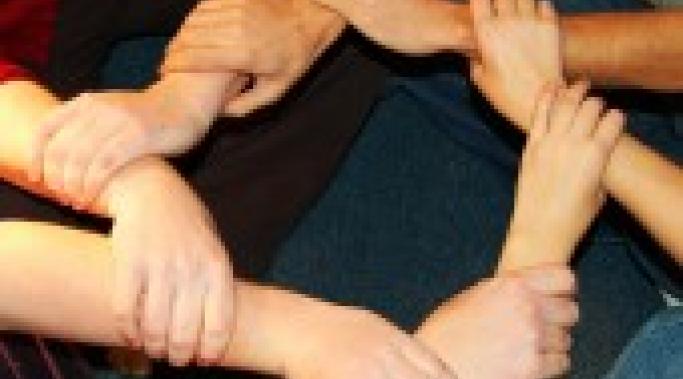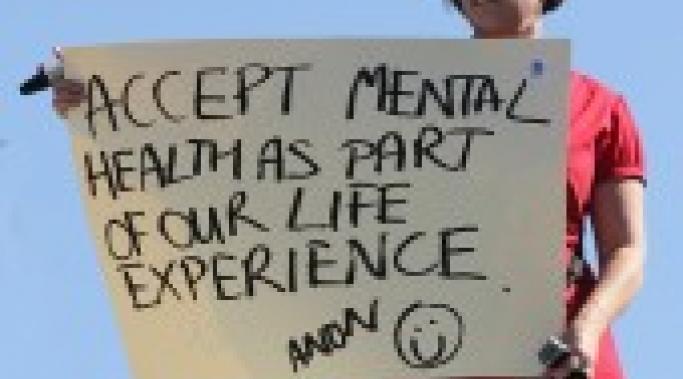Blogs
Recently someone who I consider a friend had some rather unfortunate things to say about me, including that I'm narcissistic. This, I do not believe to be true. Not even a little. Nevertheless, this particular insult echoed inside my brain over and over until I was sure it was stabbing the inside of my head with heated spikes.
I couldn't let it go.
I tried, really I did. I told myself it's not about me. It's just one person's opinion at one moment. It isn't true. And so on, and so forth. But my brain had a death-grip on the insult and refused to let it slip.
So what do you do when you're obsessive, bipolar brain turns to thoughts of crazy?
R.E.L.A.P.S.E. Seven letters. Just seven. This seems impossible: the experience of mental illness relapse requires millions of words. As many words as the emotions it evokes, the pain it causes and the feeling that, you, that I, cannot escape. The fear of mental illness relapse isn't lessened by knowing recovery will follow.
I'm sharing this deeply moving, powerful short film not simply because abuse is a topic around which there cannot be too much awareness but because anxiety doesn't come from nowhere. Abuse isn't the only cause (there are many, even if you have been abused) but the effects of abuse are inseparable from mental health, whether or not you have a clinically diagnosable mental illness.
Depression caregivers need our support, too.
A lot of the holidays are not very ADD-friendly. It seems there are more deadlines to be met, expectations to reach, and a lot more chaos to filter out. Even still, there are many things I truly enjoy about the holidays and really fit with my spontaneous, live in the moment, out of the box thinking ADHD brain style.
A little while back I went through an amazing phase of remission. I started a new medication and it worked like magic in a very short period of time. In short, it was a miracle.
At the beginning, I kept the miracle to myself. Others noticed I had changed but no one said anything and neither did I.
But eventually, a few weeks passed and I just had to tell people how great I felt. I thought I was "safe." I thought the remission would be around for a while. I thought I would be able to announce the good news and then not disappoint people when the treatment stopped working.
I, of course, was wrong.
As fast as the remission came, it left. And I couldn't get it back. It felt like I was being punished about being happy about, well, being happy.
Unfortunately for all of us, crime does not take some much-needed time off during the holiday season. On the contrary, society’s creeps, crustaceans, and cellar-dwellers take advantage of our goodhearted generosity during this most expansive time of year to pick pockets, pilfer, and plunder.
What’s worse is how they do it. Cleverly employing the techniques used by legitimate charities, these wretches bilk the joyful multitudes of millions by soliciting donations to non-existent charities.
Remember – most charitable organizations are entirely legitimate, the work they do is admirable and much needed. That is what makes it so sad when well-meaning individuals are duped by deceivers! Before you give, make sure the recipient is an authorized representative of a legitimate organization.
As if dealing with a diagnosis of mental illness is not hard enough, many of us are confronted with a feeling that we do not belong in our family, within our peer group -- we feel different. I'm pretty sure there is no definition for 'the black sheep syndrome' but, just in case, let me refer to my trusted thesaurus.
In 2008, the passage of the Paul Wellstone and Pete Domenici Mental Healthy Parity and Addiction Act was a huge and historic story. It was a 12 year fight by mental health advocates and championed by the late Minnesota Sen. Paul Wellstone. The parity act was passed in order to require insurance companies to treat mental health on an equal basis with physical illnesses, when policies covered both. Wellstone’s son had championed for years on behalf of his father after Wellstone’s death from a plane crash in 2002.
Philip K Dick, one of the world’s greatest science fiction writers, unquestionably had periods during his lifetime that he had great difficulty determining reality. At one point he had even been diagnosed with schizophrenia. Today it is debated as to his exact condition, but what it is known is that he used his mental issues as a positive force in his writing.
I am not an expert on Philip Dick, but I can easily see how my illness, schizophrenia, can be used as a positive force in writing. The illness itself has a way of trapping you in an alternate universe, with strange plots and villains dancing about. One only needs to transfer these places and enemies onto paper, in order to write interesting stories.







